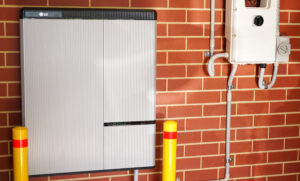Electricity is one of the modern conveniences that people take most for granted. A short power outage is enough to remind everyone how reliant they are on electricity.
Severe weather conditions and poor infrastructure can increase the frequency and duration of outages. However, you do not need to remain powerless. Several kinds of backup generators can keep daily life flowing amidst a blackout. The best generator for a home power outage will ensure that you stay safe and can access electronic appliances during such emergencies.
If any family member depends on electrical power to operate critical medical equipment, you can mitigate the risk by using a generator during an outage. These devices have numerous benefits, and hence, buy the suitable one after careful consideration. Select a model that will meet the necessities of the household. Check out what specifications of a generator you need to power your house.
How Does a Generator Work?
These machines convert mechanical energy into electrical energy. Think of them as the opposite of an electric motor as the process runs in reverse. It contains a rotating shaft which is the source of energy, and its movement results in the production of electrical energy as the output. To create mechanical energy there is an internal combustion engine. It burns a fuel source (like natural gas, diesel, or gasoline). The engine then converts the chemical energy, present in the fuel, into the engine shaft’s mechanical movement (by spark plugs, pistons, connecting rods, etc.).
The generator includes an alternator where the transformation of mechanical energy into electrical energy occurs. The generator finally uses the output voltage and current to power appliances and other devices. A voltage regulator circuit adjusts the stator’s output voltage to a standardised value like 120V or 240V. It helps them directly power the home circuits, just like the commercial utility power.
How are Generators Rated?
These machines are rated in units of power like kiloWatts (kW) or Watts (W). A Watt is the amount of power that a piece of equipment consumes. In a DC circuit, a light bulb operating at 12 volts and drawing 0.1 Amperes of current would consume 1.2 Watts of power.
However, it is different for homes functioning on Alternating Current (AC), as the power calculation is more complex. A few generator models comprise ratings in units called Volt-Amperes (VAs). It is also known as kVAs. kVA’s use as a rating for power requirements is created to account for the possible phase difference between the applied voltage and the AC circuit’s current which is feeding a load.
The kW rating is the actual power measure, i.e the power that can be utilised to produce output. If an electrical system is 100% efficient, the apparent and the actual power would be equal. However, they never function at 100% efficiency because of losses. Hence, the actual power in kW is always lower than the apparent power. While specifying generators, producers will present ratings for either apparent or actual power. The kVA rating is frequently utilised as it considers the peak of both current and voltage without regard to whether they happen simultaneously. Keep this in mind while buying the best generator for home power outage.
When it comes to AC circuits, consider two kinds of loads – resistive loads and reactive loads. In the case of resistive loads, the applied AC voltage and current are in phase. Many home appliances are resistive loads, like ovens, coffee makers, waffle irons, toasters, etc. They have simple heating elements but no motors.
Reactive loads are ones in which the power consumption varies from the first start-up state to the running state. You can find them in appliances like air conditioners, refrigerators, furnace motors, etc.
How Many kVA Do You Need in Your House?
An average home needs at least 3 kVA to 5 kVA. You can then use the generator to run all your household appliances. It includes the refrigerator and the ACs, along with other electronic products that use heavy-duty points.
Over the last few years, there have been several advancements in generator technology. Now, one can find smart systems or technology integrated into generators. Further, people can also avail of portable kinds, like the EcoFlow DELTA Max Portable Power Station.
Some of the Latest Features that Modern Generators Possess
The auto on/off aspect is amongst the most convenient elements associated with modern generators. Whenever there is an electric supply failure, the device will start automatically. It is an excellent feature that reduces the work of the homeowner, who can enjoy the benefits of the best generator for a home power outage.
A 5 kVA diesel-powered generator provides a significant amount of output per litre of diesel consumed. It is a valuable feature as the diesel’s price is a factor that one must consider while buying a generator. Overall, a portable and efficient generator makes life at home very convenient.
How to Estimate the Size of your Required Generator?
First, prepare a list of all the essential appliances, circuits, or devices in your home that need power during an outage. Separate them by the kind of loads (resistive vs. reactive). Next, check out their power requirements. Consider both starting and running power if it is a reactive load. Add the power requirements to the devices’ list and then total up the power for kW or kVA. In the end, add in the starting power needs for products that are not resistive loads.
For instance, you may want to power a freezer, a television, a refrigerator, and a furnace during an outage. Go through the nameplates on these machines to detect information about the power consumption. You can consult the manuals for specifications. In the list, the television will be in the category of resistive load, while the remaining will be under reactive loads.
If you fail to locate the power requirements, calculate them through other values like current and voltage. The list should contain a column for both starting and running power. After adding the power requirements, use the total to evaluate the minimum generator power necessary.
Read more:
What Specifications Of A Generator Do I Need To Power My House?
















